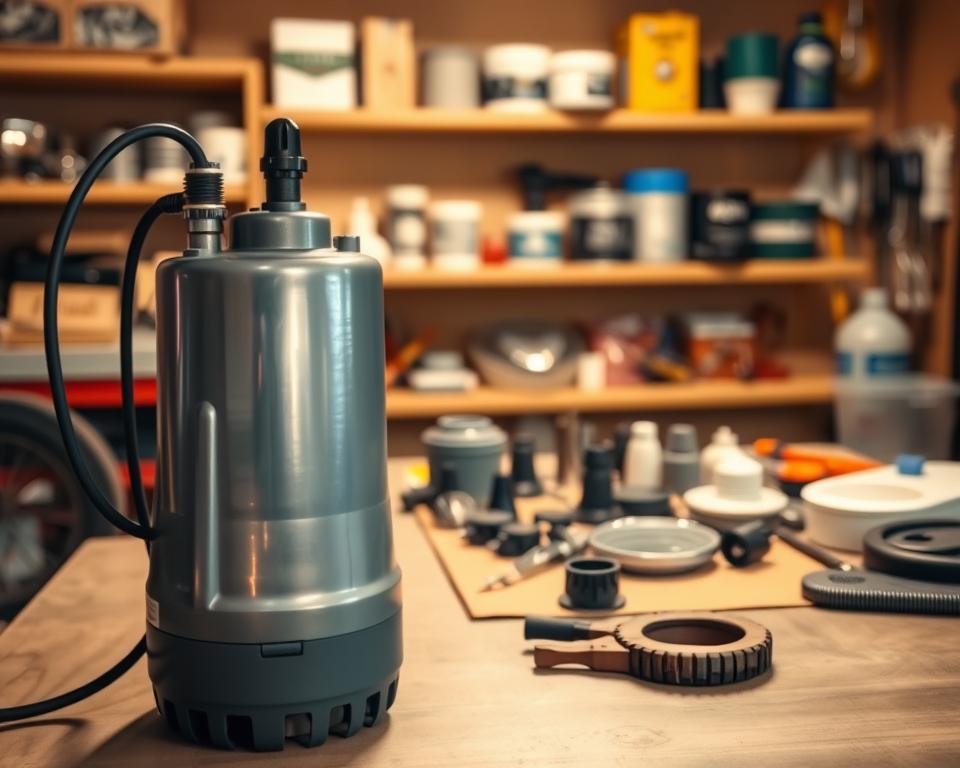Expert Fat Trap Disposal Services in Your Area
Have you noticed the unseen hazards in your restaurant’s fat trap? It’s not just a minor concern; neglecting appropriate grease trap removal can greatly influence your cooking space and operation. In an field where following regional rules and maintaining sanitation is vital, routine oil interceptor maintenance is imperative. By selecting specialized oil trap cleaning, fats, oils, and grease (FOG) are efficiently extracted. This not only lengthens the lifespan of your cooking space pipes but also ensures a cleaner workspace for your employees.
Allocating funds for these solutions boosts your operational effectiveness and protects your business from hefty fees. Learn how these specialist solutions can be a game-changer for your establishment.
Grasping Grease Trap Disposal Solutions
Oil trap management services are vital for the efficiency and safety of commercial kitchens. These measures target cleaning RV septic pumping. They are essential for trapping lipids, oils, and fats (FOG) before they enter the drainage system. Knowing how these services work helps food establishments comply with standards and run smoothly.
Understanding a Grease Trap?
A grease trap is a kitchen fixture that captures and contains FOG from wastewater in commercial kitchens. It stops these undesirable materials from clogging sewage lines and getting into wastewater systems. This reduces the risk of costly plumbing problems and pollution. Cleaning fat interceptors includes removing all the fat to ensure their proper function.
Significance of Frequent Maintenance
Consistently extracting oil from devices is essential for seamless running. If fat builds up, it can lead to:
- Clogged wastewater lines
- Poor sanitation
- Likely penalties for violations
Maintaining the FOG level below 25% is crucial. This guarantees the system works right and preserves the environment.
Advantages of Professional Services
Expert fat trap management services bring many advantages:
- Guarantees conformance with health regulations
- Minimizes the possibility of drainage issues
- Lengthens the durability of kitchen equipment
With trustworthy servicing, restaurants can concentrate on quality service. They can avoid concerns about pipe blockages or fines.
| Aspect | Importance | Benefits |
|---|---|---|
| Frequent Servicing | Avoids blockages and obstructions | Long-lasting equipment |
| Professional Cleaning | Meets health standards | Stops fees |
| Compliance | Adheres to local regulations | Enhanced business image |
Restaurant Kitchen Waste Management and Oil Control
Proper waste handling is crucial to a commercial kitchen’s smooth operation. Fats, oils, and fat (FOG) are critical elements of food service waste, posing substantial issues if not handled properly. It’s crucial to grasp the influence of FOG and embrace efficient approaches for fat handling to ensure an efficient food service setting.
The Role of Fats, Lubricants, and Grease (FOG) Impact Your Cooking Area
FOG presents numerous problems in kitchens. Faulty disposal can result in obstructed plumbing, resulting in backups that stop operations. These problems lead to expensive corrections and interruptions for businesses. Frequent evaluation of waste management methods is crucial to avoid such issues. Neglecting appropriate FOG management can escalate into serious problems over time.
Methods for Effective Waste Management
Adopting effective waste disposal methods can significantly enhance culinary effectiveness. Consider these practices:
-
Scraping Food Off Plates: Clear residual food from plates before rinsing to limit FOG entering the drain.
-
Employing Sifters: Place strainers in basins to trap material, stopping it from reaching the plumbing.
-
Grease Interceptors: Depending on the food service arrangement, fat traps can significantly reduce fat entering the sewage system.
Solutions like Oil Trap Management Service provide personalized plans for food service kitchen waste removal and FOG handling, boosting culinary efficiency. By prioritizing these strategies, food service establishments can reduce the challenges linked to FOG and promote a sanitary culinary workspace.
| Strategy | Explanation | Advantages |
|---|---|---|
| Dish Cleaning | Removing food waste from plates before washing | Reduces FOG entering drains, preventing clogs |
| Drain Filters | Using strainers to catch solid materials in sinks | Minimizes solid waste contributing to FOG buildup |
| Oil Catchers | Using devices to trap oil before reaching the sewer | Ensures compliance with local regulations and reduces maintenance costs |
Opting for the Best Oil Trap Management Services
When choosing oil trap removal services, it’s crucial to evaluate several aspects for the optimal selection. Evaluating the standing and experience of solution providers substantially influences the standard of service. Businesses adept at local regulations compliance ensure your establishment remains legally sound.
Elements to Evaluate When Engaging Specialists
Choosing specialists for oil trap management can be challenging. Before finalizing, evaluate these aspects:
-
Experience: Look for firms with a strong background.
-
Customer Reviews: Insights from past clients help gauge approval ratings.
-
Technology and Equipment: Verify the provider uses modern, effective gear.
-
Service Speed: Select companies renowned for prompt and reliable service.
-
Pricing Clarity: Verify clear pricing to prevent unexpected charges.
Renown and Track Record of Firms
The standing of service providers is essential in your choice. A well-regarded company often implies dependable grease trap management measures. Consulting web feedback and seeking referrals can help you find reliable companies. Companies with a proven history and positive user testimonials typically demonstrate reliable service.
Local Regulations and Compliance
It’s vital to understand local regulations about oil trap removal. These regulations vary greatly and non-compliance can cause major fees for your operation. Ensure the firm is well-versed in these guidelines and reliably complies with them. A adherent firm not only protects your establishment but also improves its business standing.
| Component | Value | What to Look For |
|---|---|---|
| Track Record | Ensures reliability and expertise | Years in business and specific industry experience |
| Standing | Shows standard of support | Online reviews and client testimonials |
| Regulatory Adherence | Shields operation from penalties | Understanding of municipal waste guidelines |
| User Assistance | Provides seamless dialogue | Accessibility and reaction time of support staff |
| Pricing Clarity | Prevents surprise charges | Transparent costs and open charges |
Grease Trap Upkeep Suggestions for Dining Businesses
Thorough culinary fat trap maintenance is crucial for restaurants. By adopting proactive maintenance strategies, the lifespan and efficiency of oil traps can be significantly prolonged. This part gives insights into servicing oil traps, recognizing warning signs, and setting up a maintenance schedule.
Proactive Upkeep Effective Methods
To ensure oil traps operate optimally, explore these precautionary care top tips:
- Regular cleanings based on oil trap service frequency.
- Correct removal of culinary fats and oils.
- Preventing the entry of culinary debris into drains.
- Routine inspections to assess trap efficiency.
Indicators of Grease Trap Problems
Recognizing warning signs can avert expensive fixes and business disruptions. Look for:
- Unpleasant scents originating in the kitchen.
- Slow drainage in plumbing fixtures and fixtures.
- Noticeable fat accumulation near pipes or grease traps.
- Frequent backups or obstructions in plumbing systems.
Suggested Upkeep Timetable
Establishing a maintenance schedule is vital for effective kitchen grease trap servicing. Common recommendations comprise:
| Trap Category | Recommended Service Frequency |
|---|---|
| Miniature Indoor Interceptors | Each Month |
| Sizeable Outdoor Traps | Every 3-6 Months |
Sticking to these recommendations will improve the functionality and lifespan of oil traps in your culinary space. It also ensures adherence with health regulations.
Locating Professional Fat Trap Removal Providers in Your Area
For food service managers, finding specialist oil trap disposal services is crucial for ensuring cleanliness and adherence. Start with investigating local companies that focus on fat trap and FOG waste management. Opting for local providers ensures prompt support and conformance to local regulations.
Consider these elements:
-
Trustworthiness: Choose companies known for reliable support.
-
Environmental Practices: Check the sustainability efforts of potential companies.
-
Compliance: Ensure they follow regional waste management rules.
User testimonials is crucial. Examine comments and ratings from other dining establishments. This approach aids locate trusted oil trap removal providers in your region.
| Firm | Support Level | Eco-Friendly Practices | Conformance to Municipal Guidelines |
|---|---|---|---|
| Grease Trap Pumping Service | Top | Yes | Always |
| Municipal Waste Services | Medium | Definitely | Consistent Conformance |
| Green Fat Trap Services | Top | Remarkable | Consistently |
By focusing on local grease trap pumping, operations can guarantee efficient service delivery. This approach also enhances specialist fat control within their businesses.
Summary
Effective fat trap management services are essential for the seamless running of restaurant kitchens. They provide compliance with local regulations and enhance a cleaner workspace. Frequent servicing and on-time removal avert blockages and overflows, averting interruptions and expensive fixes.
By engaging professional fat trap removal solutions, establishments can prioritize their primary functions without fretting over cleanliness. Businesses that focus on restaurant waste disposal provide the required skill to execute proper oil management practices. This guarantees that culinary teams work in a healthy workspace. Companies like “Oil Trap Management Company” deliver on-time support, supporting the durability of drainage networks and improving kitchen efficiency.
Restaurants that commit to regular oil trap servicing and choose reliable companies gain considerable advantages. A cleaner food service setting not only enhances culinary hygiene but also raises staff satisfaction and user contentment.
Contact Us for Professional Fat Trap Management Providers
If your operation needs trustworthy grease trap disposal measures, timely assistance is just a call away. Our staff at Oil Trap Management Company is dedicated to offering specialist kitchen waste management tailored to your food service’s particular requirements. We recognize that each business is different, and we take pride in offering customized solutions. These services provide smooth plumbing function and adherence to regional rules.
Our knowledgeable and skilled staff is available to support you in ensuring a healthy culinary space. Routine oil trap servicing boosts your kitchen’s functionality and improves its hygiene. By opting for our professional culinary waste disposal solutions, you’re committing to the longevity of your tools and the seamless running of your establishment.
Do not wait to get in touch today to set up a consultation. Enjoy the confidence that comes with reliable fat trap disposal services, providing your restaurant kitchen runs efficiently and effectively. Let us manage your oil handling demands, allowing you to concentrate on properly attending to your patrons.



